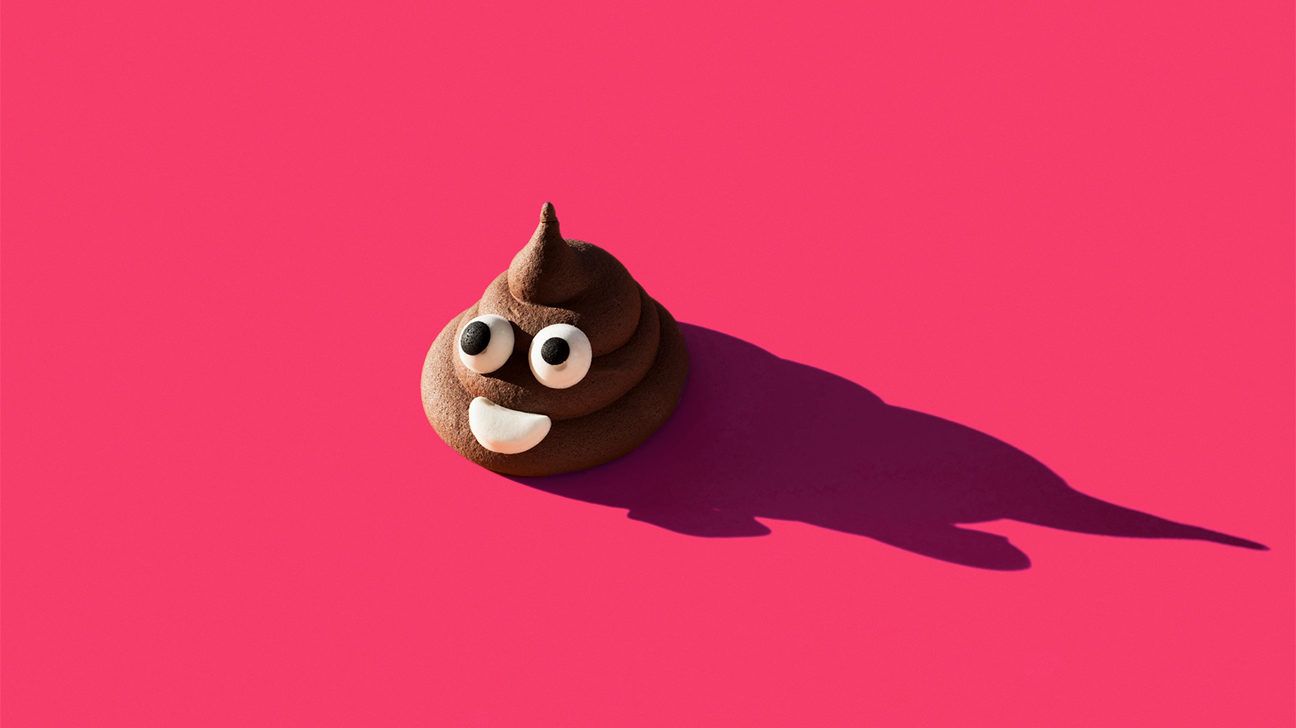Wondering why your poop is so sticky? Discover the common causes of sticky poop, from diet to health conditions, and learn practical tips to improve your digestive health. Find out when you might need to see a doctor.
You’re probably here because you just Googled “poop.” Maybe you’ve already accidentally learned a few things about poop eggs or poop tadpoles and seen some unexpected images. Yikes!
Don’t worry — here’s all the info you actually need about why your poop is so sticky.
Food goes in, poop comes out. But what fantastic science goes on between point A and point B?
Through the magic of digestion, food is broken down, nutrients and fluids are absorbed, and all the unused bits are disposed of through the back passage.
Depending on what you eat and drink — and the relative health of your digestive tract — your poop can take on a whole range of characteristics. So why’s your poop suddenly sticking around the bowl after you flush?
Fatty foods, like fried or cheesy goodies and red meat, are one explanation. Poop that’s sticky, greasy, and difficult to flush can indicate a problem with digesting dietary fats.
Many health conditions can cause poor fat digestion, including celiac disease, pancreatitis, pancreatic cancer, lactose intolerance, and inflammatory bowel disease.
People with celiac disease can’t digest the protein gluten, which is a component of wheat and is found in bread, cereals, and many other foods. Poop that’s pale, greasy, and foul-smelling (like, worse than usual) is a symptom of celiac disease.
A peptic ulcer, or irritation of the upper digestive tract, may cause bleeding. And the mixture of blood and digestive fluids can result in black, sticky stool that looks like tar.
Ulcers are caused by infection from Helicobacter pylori bacteria or overuse of nonsteroidal anti-inflammatory drugs (NSAIDs).
While black stool can be a sign of an ulcer, it may also be caused by ingesting iron supplements, black licorice, or medications containing bismuth subsalicylate (like Kaopectate or Pepto-Bismol).
So much body weirdness can be corrected by drinking more water. Adequate hydration will help your organs do their jobs and keep your bowels moving smoothly.
Also: Exercise regularly. Yes, moving your body supports the progress of food through your digestive system! Why do you think dogs and dads need their morning walk every day?
Drugstore goods to try
You’ll find a whole aisle of digestion-supporting supplements in your local drugstore. Probiotics and digestive enzymes can help get your gut in good shape. Fiber supplements can also help if you don’t get enough fiber in your diet.
A reminder: Supplements aren’t regulated by the FDA, so do your research or talk to a healthcare provider before choosing one. It’s usually easier and more effective to get your nutrients by eating whole foods.
Eat more plants
Fiber is the superstar of healthy digestion. It bulks up stools and acts like a street sweeper to push things through (but somewhat more gently).
To get more fiber in your diet, eat plenty of fruits and vegetables (including the peels), beans, lentils, whole grains, nuts, and seeds.
Registered dietitian Holly Larson suggests these high-fiber foods:
- 1 large pear with skin (7 grams)
- 1 cup fresh raspberries (8 grams)
- ½ medium avocado (5 grams)
- 1 ounce almonds (3.5 grams)
- ½ cup cooked black beans (7.5 grams)
- 3 cups air-popped popcorn (3.6 grams)
- 1 cup cooked pearled barley (6 grams)
We know we already mentioned water, but it’s especially important to get enough H2O when you’re upping your fiber intake. All that fiber needs to soak up water so it can pass through your digestive system easily.
If you think certain foods, like bread or milk, are causing your digestive issues, or if you’ve been diagnosed with celiac disease or lactose intolerance, avoid those troublemakers!
If you’ve been diagnosed with inflammatory bowel disease, Crohn’s disease, or ulcerative colitis, check out these dietary tips.
Being “regular” can mean a range of poop color, frequency, and consistency. With good bowel health, your stool should be soft and easy to pass, and you should go No. 2 anywhere from three times a day to three times a week.
Check out this handy chart to determine whether your stool falls in the “normal” range most of the time.
Good bowel function also means you should be able to get to the toilet in time, have a pain- and strain-free bowel movement within a minute of sitting on the toilet, and completely empty your bowel in one sitting.
If changes in your stool last longer than a week after you’ve tried the tips above, it’s probably not a temporary issue. That means it’s time to see your doctor to rule out or get treatment for an underlying condition.
A doctor will help you identify any malabsorption issues and change your diet to remove the trouble foods if you have celiac disease or lactose intolerance.
If you think you have an ulcer or other unexplained internal bleeding, a doc visit is especially important. A doctor can do lab tests or use a small camera to check your upper GI tract for signs of an ulcer. Ulcers are treated with antibiotics and other medications.
Poop is gross and weird. If your poop is extra gross and weird right now, try eating more fiber, drinking more water, and exercising regularly.
If you don’t see improvement after more than a week, it’s probably a good idea to have that awkward conversation with your doctor to see what’s going on.


